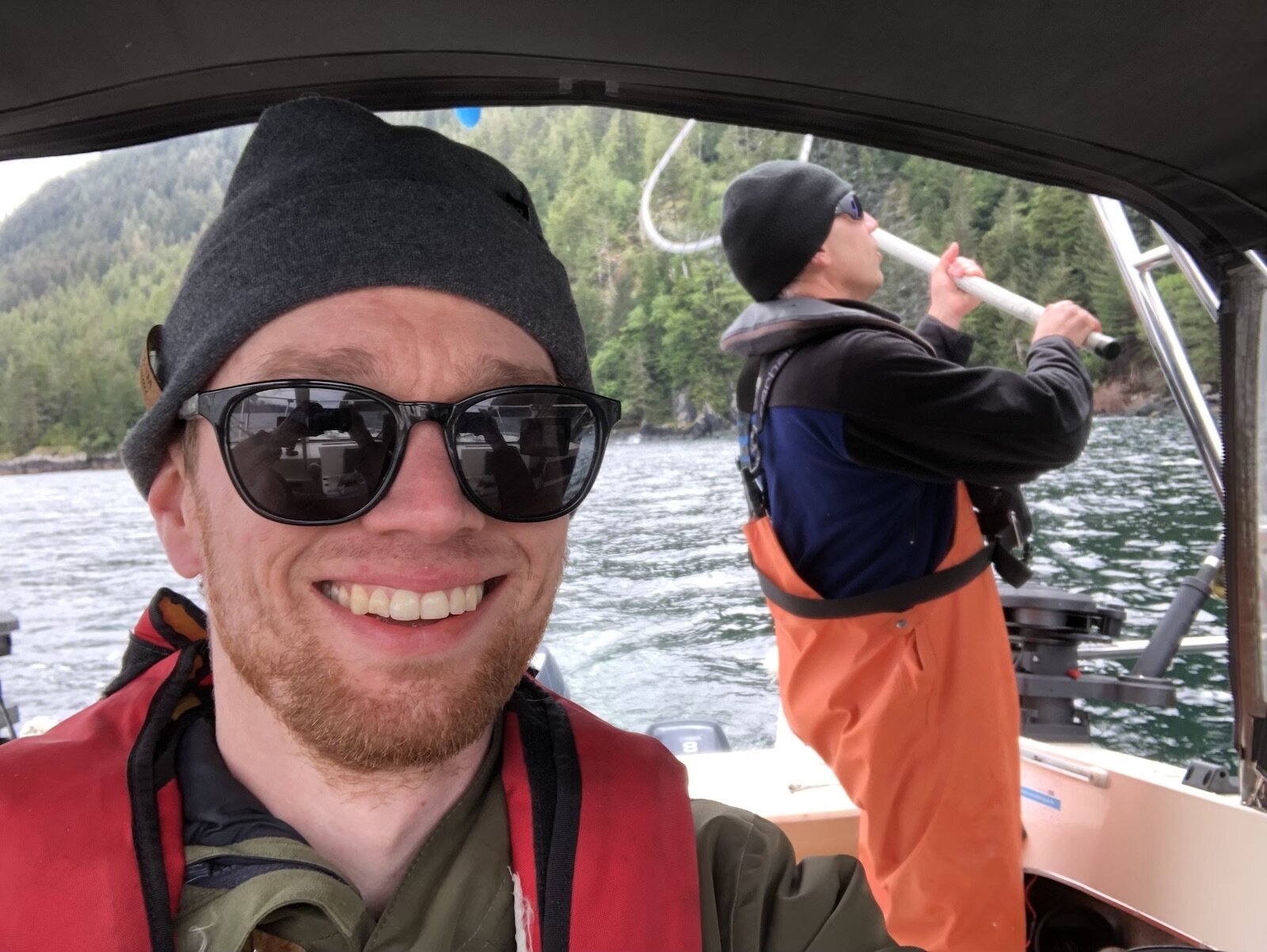Old Massett village feeds 5000 with halibut gifts: What if life was more like this?
Through a generous communal gift, the people of Old Massett show us what kind of future is possible on Haida Gwaii, in Canada, and everywhere else that needs a little hope.
The wipers blurred my windshield as I puttered down to the dock Sunday afternoon. We’re usually forbidden to park in the gravel lot next to the fish packing warehouse – not a place I normally visit – so I enjoyed the novelty of rolling to a stop with a direct view over the marina and toward the mountains. On this day, a low rain cloud covered the peaks. But I wasn’t there for the scenery.
I came for the fish. Arrive alone, they said. Mask up, stand back. We’re all used to this routine now, but it still feels like I’m about to rob a bank or deliver a ransom. Clear paths with taped-on arrows and physical-distancing signs guided me around back. A choir member waved to me on the way in. At the wide entrance, our mayor was making sure everyone knew who was responsible for the gift of food, and after a quick chat and a signature, I came away with about five pounds of frozen halibut. At least 100 other villagers had already collected fish, I was told – at no charge. I passed a neighbour on the way out.
My unusual trip to the dock happened thanks to an immense act of generosity. The village of Old Massett (with funding from Gwaii Trust Society) gathered and packaged enough halibut to feed every household on Haida Gwaii. And they’re giving it all away as a gift. The fish is still being distributed across the islands until all communities and every household receive their portions.
My friend Dave and I fishing for salmon near Daajing Giids (at a time when bubbles were allowed in B.C. during the pandemic)
If you didn’t know, Haida Gwaii is a chain of islands just south of Alaska, along the northwest Canadian coast. I live there, in the village of Queen Charlotte/Daajing Giids, with my partner, our golden retriever, and a cranky cat. Most of Haida Gwaii’s four or five thousand residents are spread out across the two biggest islands: Graham and Moresby. Old Massett is on Graham Island, about a 90-minute drive from our place, which is about the farthest you can go by car.
Old Massett is home to many Haida. Tourists probably know it as a seaside village near impressive beaches where you can see totem poles and meet Haida artists. All this is located on the traditional, unceded territory of the Haida Nation, where many settlers like myself also live. By Canadian reckoning, the Old Massett village site is reserve land – part of the colonial heritage that so many are trying to confront or deny.
That legacy causes suffering. Canada has wealth inequality like The Great Gatsby had pool parties. Millennials, generally speaking, are not going to live more comfortably than their parents. Our social programs have been eroding since before I was born. Systemic racism distorts our society, laws, and personal biases. Our health and seniors’ care systems are breaking down during a pandemic. And all this is happening during, if not causing, a climate emergency.
To solve serious problems like these, we need new ideas. Lately I have found hope through science fiction. If the story of the feeding of the five thousand was a novel, would it be sci-fi or fantasy? Today, writers like Cory Doctorow, Ursula K. Le Guin, N. K. Jemisin, Hank Green, and James S. A. Corey tell stories that spark my imagination about what the future might be if things were just a little bit different. Or even a lot different. My most recent orchestral music (“Trees On A Wire,” below) was inspired by the mycelial networks of Star Trek: Discovery and their real life analogues in Haida Gwaii forests.
Science fiction has become an obsession of mine. It’s about more than escapism, lasers, and musical inspiration. The stories help me ask the questions we need more than ever these days: the ones that start with “What if?”
What if there were more acts of collective generosity?
What if more of us learned to grow and harvest food, wherever we live?
What if housing was a human right? Or internet access?
What if we immediately implemented all 94 calls to action in the Truth and Reconciliation Commission?
What if we defunded the police?
What if we also wiped out all student debt?
What if the green movement allied with oil and gas workers to transform a dying industry?
What if everyone divested of fossil fuels?
What if we treated climate change as the emergency it is?
What if everyone had healthy, high-quality food to eat?
What would happen next?
Sometimes, what happens next is a startling gift of fish. It is rare to encounter a hopeful science fiction story in real life, and that is why I am writing this. I think more people should know the stories of how Old Massett, the Gwaii Trust Society, and others on Haida Gwaii are doing things a little differently.
I am grateful for the meals and all the effort that went into catching, preparing, and packaging enough halibut for every household here, especially during this difficult year. I have never seen anything quite like it. Haawa to everyone who gave their time, effort and labour so that we can all eat well.
So long and thanks for all the fish.
-David
